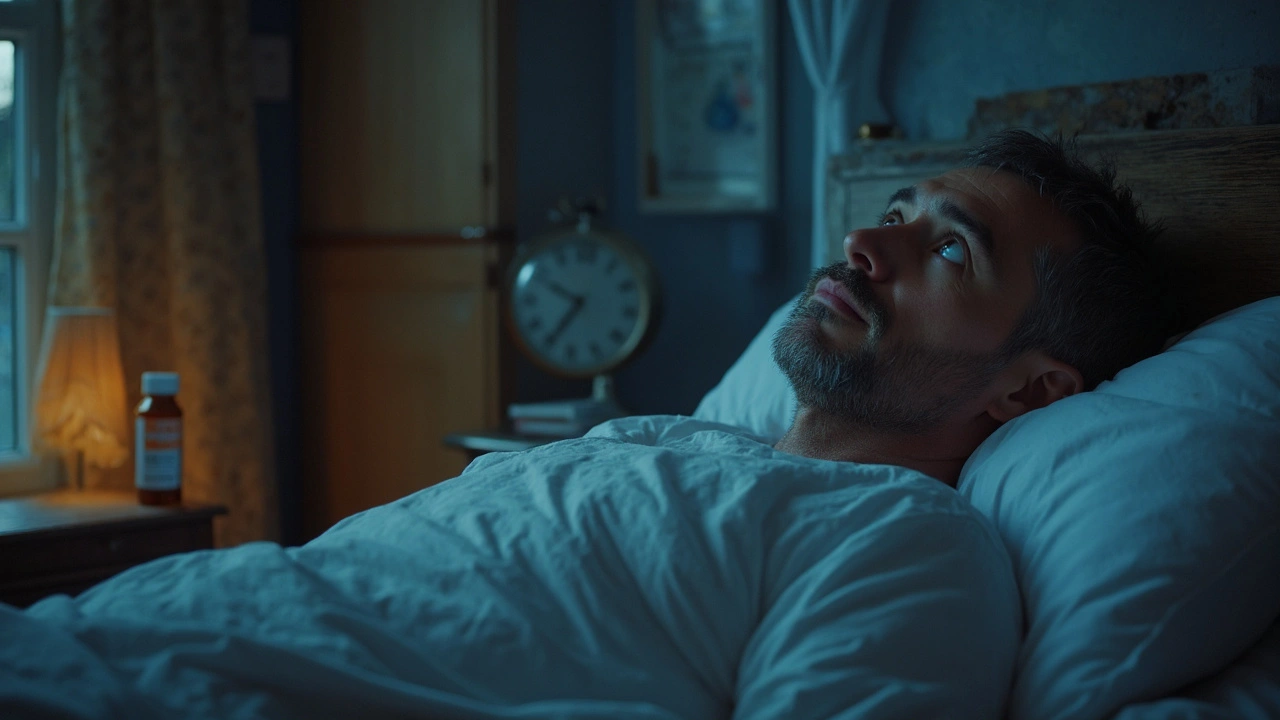Statins and Sleep: Can Your Cholesterol Pill Affect Rest?
Trouble sleeping after starting a statin? You’re not imagining it. Some people report insomnia, vivid dreams, or restless nights after beginning treatment. Most users do fine, but if sleep worsened after a statin started, it’s worth looking into — carefully and with a plan.
What the research says
Studies give mixed answers. Several small observational studies and case reports link statins to insomnia or strange dreams. But larger randomized trials usually don’t show a clear, widespread sleep problem caused by statins. That doesn’t mean you should ignore symptoms — it means the effect, if it exists, is probably uncommon or varies by the person and the specific statin.
One plausible reason: lipophilic statins (simvastatin, atorvastatin) cross the blood-brain barrier more easily than hydrophilic ones (pravastatin, rosuvastatin). That might explain why some people notice sleep changes on one statin but not another. Another factor is dose — higher doses can raise the chance of side effects generally, and muscle aches or restless legs can disrupt sleep even if the drug isn’t directly changing brain chemistry.
What you can try tonight (and next steps)
Want practical steps? Start simple: keep a sleep diary for 1–2 weeks. Note medication times, how long it takes to fall asleep, nighttime wakings, and any muscle pain or vivid dreams. That record makes conversations with your doctor useful.
If symptoms began right after a statin start, ask your prescriber about two common fixes: switching the time of day you take the pill or switching the statin. For older short-acting statins, taking them in the morning instead of at night may help. For people who seem sensitive, trying a hydrophilic statin or lowering the dose are reasonable options — but only with your doctor’s OK.
Check for drug interactions. Some medicines raise statin blood levels (CYP3A4 inhibitors like certain antibiotics or antifungals) and can increase side effects, including those that disrupt sleep. Also rule out other causes: caffeine, alcohol, stress, sleep apnea, vitamin D deficiency, or new antidepressants can all affect sleep.
Never stop a prescribed statin on your own. If sleep problems are severe or you have muscle pain, dark urine, or weakness, get medical help quickly — those are signs of rare but serious reactions.
Bottom line: sleep issues with statins are possible but not common. Track your symptoms, talk to your doctor, and consider simple changes (timing, dose, or a different statin) before making big decisions. Good sleep and heart protection should go together — and you can usually find a solution that supports both.

Do Statins Affect Sleep? The Truth About Statins and Sleep Quality
Statins help lower cholesterol, but do they affect your sleep? This article digs deep into the science and real-life experiences around statins and sleep quality. You'll learn about their impact on REM cycles, why some people struggle with insomnia or daytime tiredness, and tips for managing these issues. Get practical advice and find out where to read more on coping with statin-related sleep problems.
